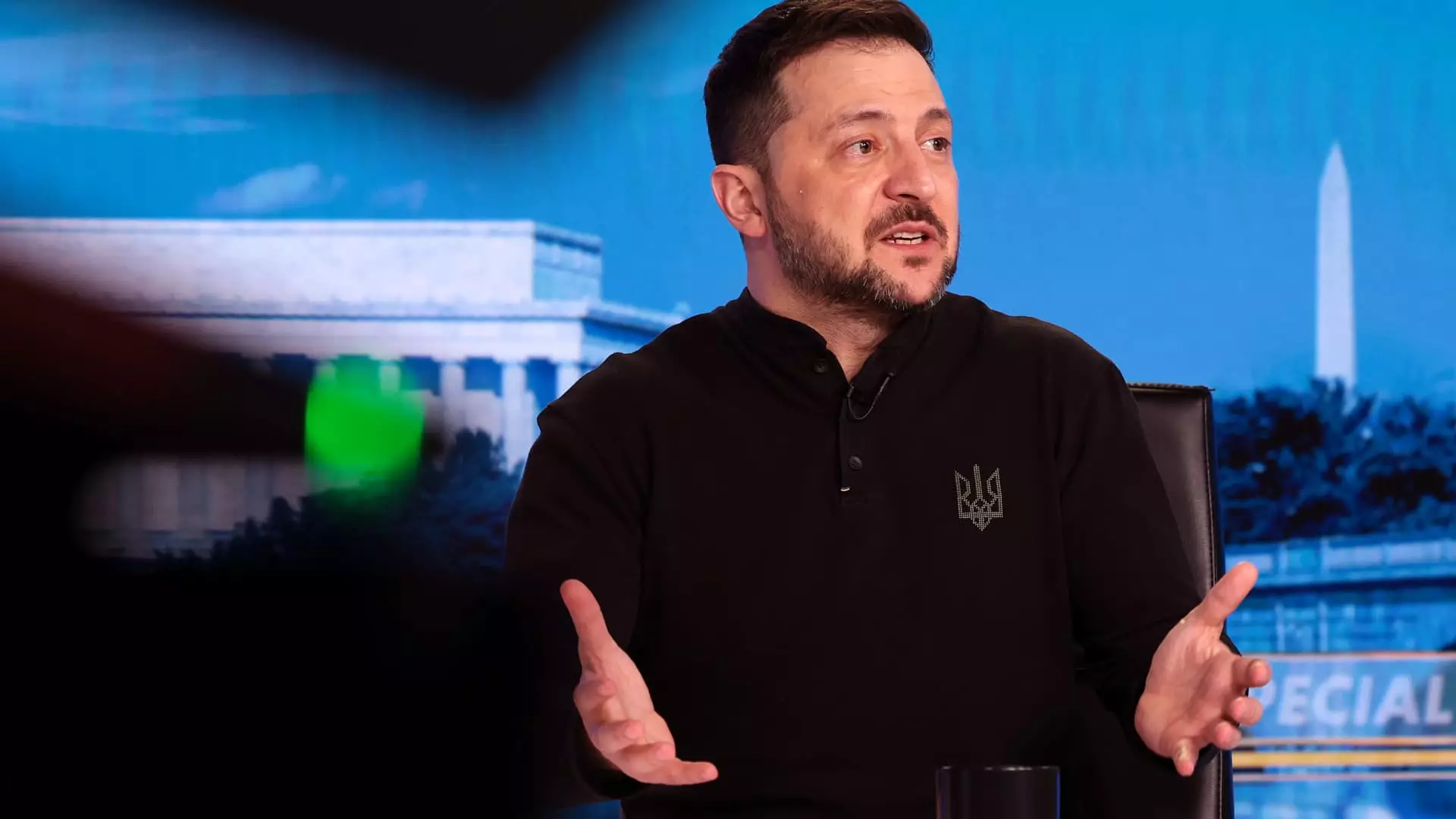In a significant diplomatic moment, Ukrainian President Volodymyr Zelenskyy recently found himself amidst a contentious confrontation involving former President Donald Trump and current Vice President JD Vance. The exchange, which unfolded within the Oval Office, marked a critical point of divergence in how the two nations perceive the ongoing conflict with Russia. At the crux of the matter was a disagreement regarding the approach to peace, with Zelenskyy firmly dismissing the idea of diplomacy with Russian President Vladimir Putin, stating that past agreements had been violated and had resulted in loss of life and prisoners held captive. The refusal to apologize, which Zelenskyy maintained was his stance during a subsequent Fox News interview, added fuel to an already fiery discourse.
Here, Zelenskyy’s perspective reflects a reality fundamental to Ukraine: any negotiation with Russia cannot be predicated on prior agreements that were readily breached. The apparent disregard for these past violations by U.S. leaders, particularly in the framing of diplomacy, reveals a disconnect that is troubling and perhaps dangerous.
The Stakes of Military Aid
During his statements, Zelenskyy made it unequivocally clear that U.S. military assistance is crucial for Ukraine’s survival against Russian aggression. His assertion that any cessation of aid would make defending Ukraine “difficult” brings to light the fragile state of Ukraine’s military power. Trump’s rhetoric, accusing Zelenskyy of disrespect for failing to express gratitude, overshadows the essential issue: the lives that hang in the balance of continued American support. Zelenskyy expressed gratitude for past aid, highlighting a complex relationship where appreciation for support blends with the pressing need for ongoing assistance amid conflict. This precarious situation underscores the urgency of U.S. involvement—not merely as a moral obligation but as a strategic necessity for the free world.
The stakes of international support for Ukraine are steep. European and NATO leaders have voiced concerns about the ramifications of a weakened Ukraine, stating that the future of regional stability—and indeed global security—depends on ensuring Ukraine can continue its resistance against aggression. Such declarations reflect a consensus that the responsibility for maintaining peace may increasingly rest on Europe’s shoulders if American foreign policy shifts.
The discourse surrounding the Oval Office confrontation reveals broader themes of discontent and frustration with traditional diplomacy. Trump characterized the ongoing conflict as needing resolution rather than escalation, while Zelenskyy vehemently argued that without fundamental changes in Russian behavior, negotiations were futile. This clash illustrates a notable polarization in international diplomacy; it reveals not only differing political ideologies but also incompatible views on how best to navigate complex global conflicts.
The backlash against Trump’s assertions that Zelenskyy simply wants to “fight, fight, fight” from various European leaders conveys a sentiment that any narrative diminishing Ukraine’s right to defend itself must be challenged. This nuanced dynamic of responsibility and rhetoric emphasizes the fragility of the global political landscape and the critical need for unity among Western allies. As leaders across Europe pledge to bolster support for Ukraine, the call to action becomes a rallying cry against aggression, portraying a united front against the destabilizing forces present in the region.
Despite the fraught exchange and palpable tension, Zelenskyy conveyed the possibility of salvaging relationships, suggesting that open dialogue could foster understanding and cooperation. His commitment to maintaining strong relations with U.S. leadership, even amidst conflict, speaks volumes about the precarious balance of diplomatic relations in a time of war.
As the challenges evolve, the necessity for cooperation—both within the confines of U.S. politics and across international borders—cannot be underestimated. The issues at play extend far beyond personal disputes; they are emblematic of the struggle for peace and security in a rapidly changing global landscape.
Ultimately, the future of Ukraine, its sovereignty, and its potential peace is intertwined with how leaders navigate these tumultuous waters. As Zelenskyy rightly noted, the need for open and candid dialogue is paramount, especially when so much hangs in the balance. The journey ahead for Ukraine requires not only fortified military support but a concerted effort to realign diplomatic strategies to reflect the realities on the ground—a step that officials must urgently embrace.


Leave a Reply